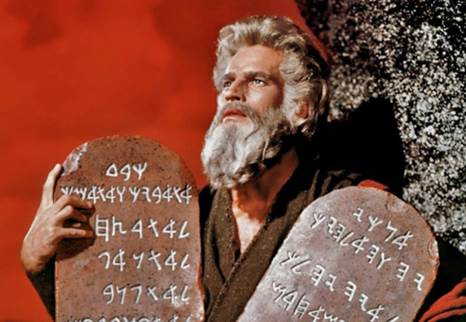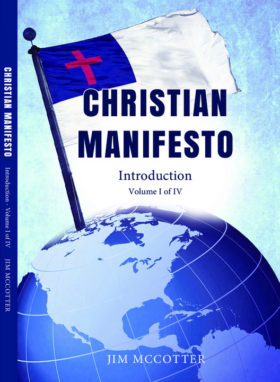Christian History
The Ten Commandments & Civil Law

Christian History “My people are destroyed for lack of knowledge.” Hosea 4:6 |

|

The Ten Commandments were given by the Lord God for personal application and also to be the civil law for Israel. Israel was then to be the “light” and model of God’s Law for all Gentile nations to follow (Isaiah 42:6, 49:6, 51:4). Sometimes Israel did a pretty good joy of it as with King David and several other Israeli Kings, but often Israel fell far short in obeying God’s Law… but this too showed the consequences of not following God’s Law.
Most Americans, even most evangelical Christians, do not realize how early America was so literally founded upon the Lord Jesus Christ and His Law – Ten Commandments, Statutes, and Judgments. God has always intended for HIS LAW to be the LAW for all nations at all times (1Timothy 1:8-11) – “All authority has been given to in Me in heaven and on earth, therefore go and make disciples of all nation… teaching them to obey all that I have commanded… and to the end of the ages” (Matthew 28:18-20).
Below is only one or more early American civil law based on each Ten Commandment, which all our early American founders understood as their biblical mandate (Exodus 20 & Deuteronomy 5):
1st Commandment: Have no other gods but your Lord God. In 1610, Virginia required its leaders to give “allegiance” to the Lord God, “from whom all power and authority is derived… and who is King of kings, the Commander of commanders, and Lord of hosts.” Even today, every state constitution references God or a Supreme Being.
2nd Commandment: Make no idols. In 1680, the New Hampshire colony enacted an idolatry law.
3rd Commandment: Do not misuse the name of the Lord your God. The 3rd Commandment was adopted by Virginia in 1610 and Connecticut in 1639. – “That no man blasphemes God’s holy name”. Similar laws were passed in: Massachusetts in 1641, Connecticut in 1642, New Hampshire in 1680, General Laws and Liberties of New Hampshire in 1680, Pennsylvania in 1682, 1700, 1741, and 1810, South Carolina in 1695 and 1814, and North Carolina in 1741 and 1814.
4th Commandment: Remember the Sabbath day to keep it holy. Virginia adopted the 4th Commandment in 1610, New Haven in 1653, New Hampshire in 1680, Pennsylvania in 1682 and 1705, South Carolina in 1712, North Carolina in 1741, and Connecticut in 1751.
5th Commandment: Honor your father and mother. Connecticut adopted the 5th Commandment in 1642. In 1934, the Louisiana Court of Appeals referred specifically to the Ten Commandments in Ruiz v. Clancy, stating “‘Honor thy father and thy mother,’ is as much a command of the municipal law as it is a part of the Decalogue, regarded as holy by every Christian people.” “A child,” says the code, “whatever be his age, owes honor and respect to his father and mother.”
6th Commandment: Do not murder. Every state held and continues to forbid murder, and the courts over time have prolifically traced the origin of prohibitions against murder to the Bible. In 1932, Young v. Commonwealth, the court wrote “all forms of governments following the promulgation of Moses at Mt. Sinai has required of each and every one of its citizens that ‘Thou shalt not murder.'” In 1998, Wisconsin v. Schultz, quoting a 1974 Indiana Supreme Court, “Virtually all criminal laws are in one way or another the progeny of Judeo-Christian ethics. We have no intention to overrule the Ten Commandments.”
7th Commandment: Do not commit adultery. A 1641 Massachusetts law declared adultery illegal. Similar laws were enacted by Connecticut in 1642, Rhode Island in 1647, New Hampshire in 1680, and Pennsylvania in 1705.
8th Commandment: Do not steal. Every colony and state adopted a ban on theft. In 1826, James Kent, considered one of the two “Fathers of American Jurisprudence,” made clear the connection of theft laws and the Bible – “To overturn justice by plundering others tended to destroy civil society, to violate the law of nature, and the institutions of Heaven.”
9th Commandment: Do not testify falsely against anyone. This Commandment became the foundation for our judicial system. Connecticut enacted anti-perjury laws in 1642, Massachusetts in 1641, Rhode Island in 1647, and New Hampshire in 1680. In Watts v. Gerking, the Oregon Supreme Court specifically cited the Ten Commandments, writing, “No official is above the law. ‘Thou shalt not bear false witness’ is a command of the Decalogue.”
10th Commandment: Do not covet what belongs to someone else. John Adams, the first vice president and second president, talked about property rights and stated, “If ‘Thou shalt not covet’ and ‘Thou shalt not steal’ were not commandments of Heaven, they must be made inviolable precepts in every society before it can be civilized or made free.” This commandment has been cited as the basis of civil laws against defamation, cattle rustling, election fraud, and white-collar crime.
I got some of the above court cases from my attorney friend Mat Staver, founder of Liberty Counsel. We need to pray for him and others who are “fighting the good fight” to defend God’s Law in our nation.
“Those who forsake God’s Law praise the wicked, but those who keep the Law strive against them.” (Proverbs 28:4) Christian Manifesto is the only book I know that not only shows God’s biblical mandate for civil action but also God’s 7 biblical strategies for civil success for God’s people:
